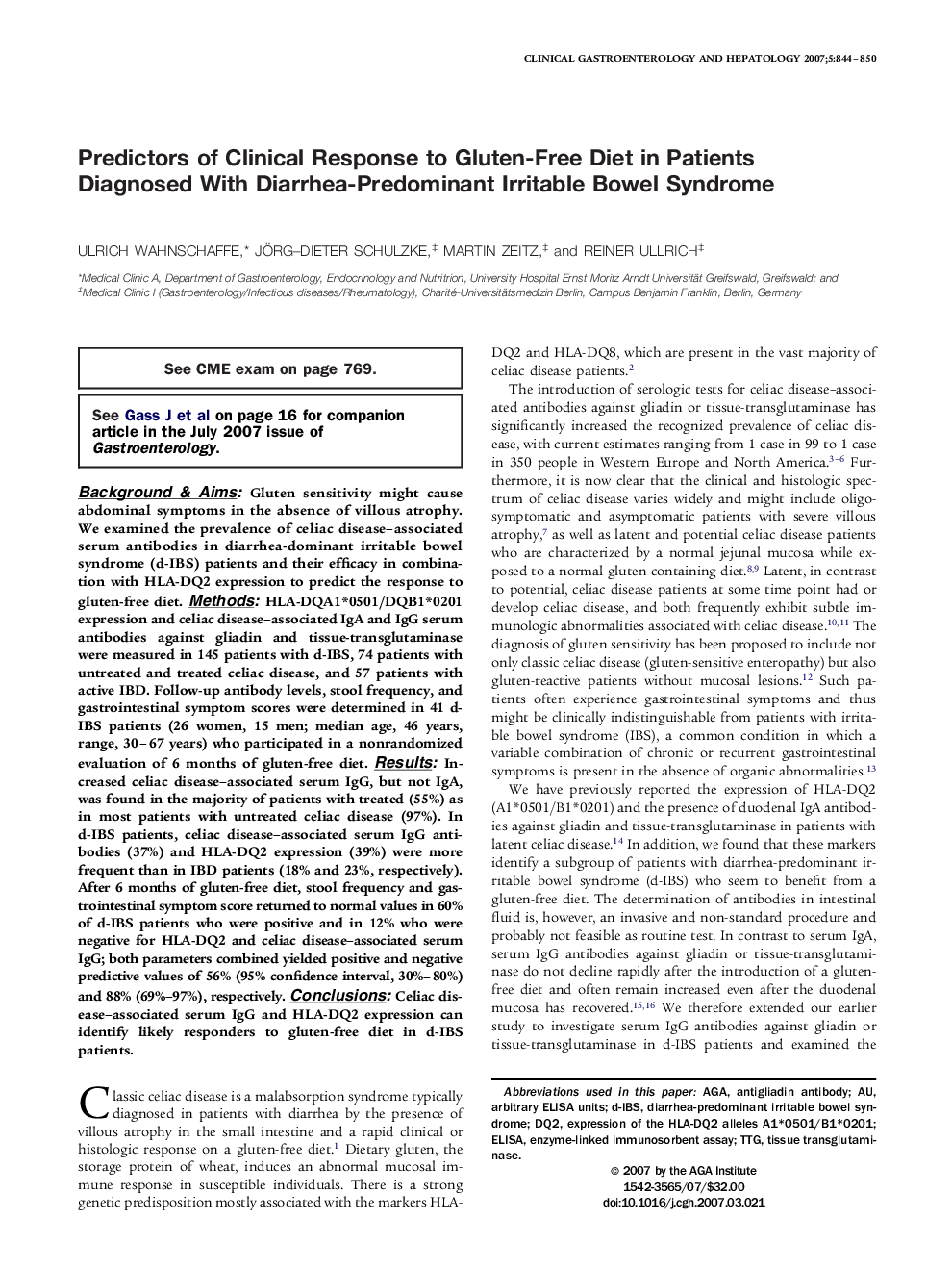| کد مقاله | کد نشریه | سال انتشار | مقاله انگلیسی | نسخه تمام متن |
|---|---|---|---|---|
| 3284977 | 1209217 | 2007 | 7 صفحه PDF | دانلود رایگان |

Background & Aims: Gluten sensitivity might cause abdominal symptoms in the absence of villous atrophy. We examined the prevalence of celiac disease–associated serum antibodies in diarrhea-dominant irritable bowel syndrome (d-IBS) patients and their efficacy in combination with HLA-DQ2 expression to predict the response to gluten-free diet. Methods: HLA-DQA1*0501/DQB1*0201 expression and celiac disease–associated IgA and IgG serum antibodies against gliadin and tissue-transglutaminase were measured in 145 patients with d-IBS, 74 patients with untreated and treated celiac disease, and 57 patients with active IBD. Follow-up antibody levels, stool frequency, and gastrointestinal symptom scores were determined in 41 d-IBS patients (26 women, 15 men; median age, 46 years, range, 30–67 years) who participated in a nonrandomized evaluation of 6 months of gluten-free diet. Results: Increased celiac disease–associated serum IgG, but not IgA, was found in the majority of patients with treated (55%) as in most patients with untreated celiac disease (97%). In d-IBS patients, celiac disease–associated serum IgG antibodies (37%) and HLA-DQ2 expression (39%) were more frequent than in IBD patients (18% and 23%, respectively). After 6 months of gluten-free diet, stool frequency and gastrointestinal symptom score returned to normal values in 60% of d-IBS patients who were positive and in 12% who were negative for HLA-DQ2 and celiac disease–associated serum IgG; both parameters combined yielded positive and negative predictive values of 56% (95% confidence interval, 30%–80%) and 88% (69%–97%), respectively. Conclusions: Celiac disease–associated serum IgG and HLA-DQ2 expression can identify likely responders to gluten-free diet in d-IBS patients.
Journal: Clinical Gastroenterology and Hepatology - Volume 5, Issue 7, July 2007, Pages 844–850